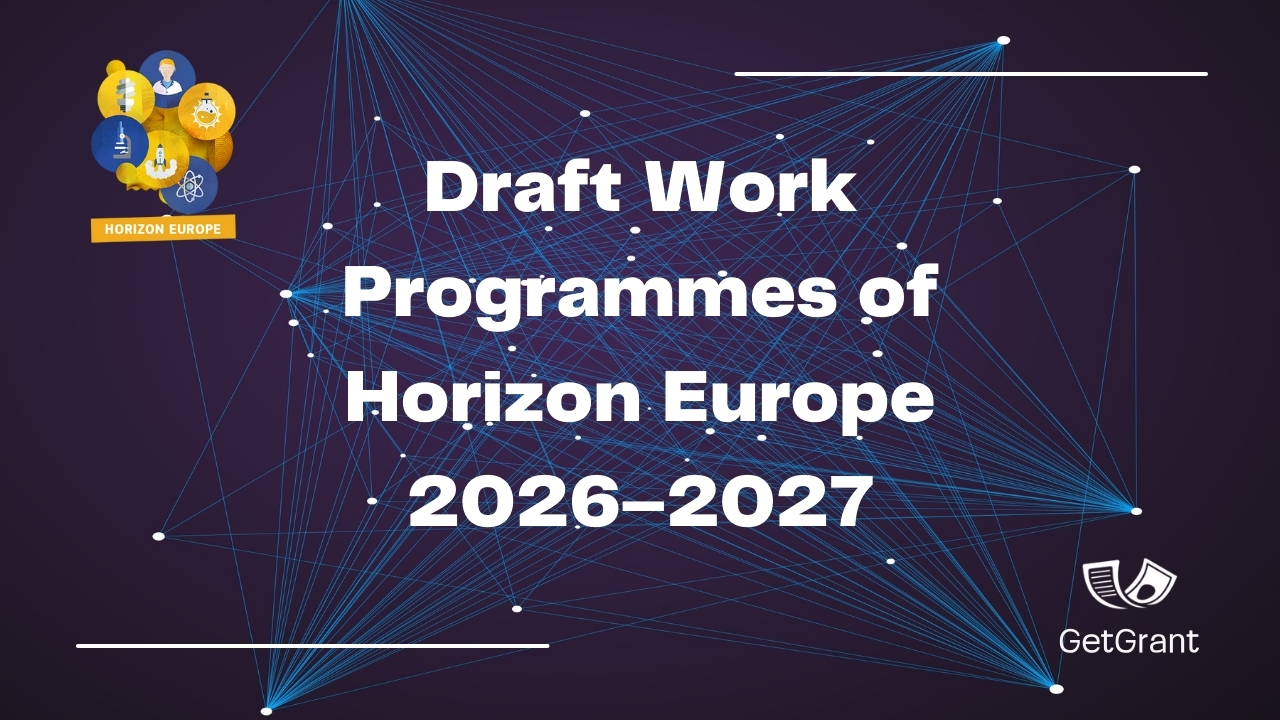The European Commission has presented the draft work programmes for the final two years of Horizon Europe – 2026 and 2027. These documents help researchers, universities, organisations, and businesses prepare in advance for upcoming calls, build consortia, plan budgets, and coordinate partnerships.
It is important to remember that these are preliminary versions (drafts), so their content may change before official adoption. The final versions will be published on the EU Funding & Tenders Portal and will have legal validity. This means that topics, budgets, and deadlines may still be adjusted.
What the Work Programmes Cover
Horizon Europe work programmes are divided into three main “pillars” and additional areas.
Pillar I: Excellent Science
This pillar focuses on supporting frontier research and includes:
-
European Research Council (ERC) – grants for leading researchers and their teams. Draft programme and annexes are available.
-
Marie Skłodowska-Curie Actions (MSCA) – mobility and training programmes for researchers at all career stages (draft pending).
-
Research Infrastructures – development of European research infrastructures, access to laboratories and shared resources.
Pillar II: Global Challenges and European Industrial Competitiveness
This pillar covers six clusters that define priorities for applied research funding:
-
Cluster 1: Health – biomedicine, digital health, disease prevention.
-
Cluster 2: Culture, Creativity and Inclusive Society – social innovation, democracy, cultural heritage.
-
Cluster 3: Civil Security for Society – cybersecurity, disaster resilience, community safety.
-
Cluster 4: Digital, Industry and Space – artificial intelligence, microelectronics, space technologies.
-
Cluster 5: Climate, Energy and Mobility – clean energy, decarbonisation, future transport.
-
Cluster 6: Food, Bioeconomy, Natural Resources, Agriculture and Environment – food security, bioresources, environmental protection.
Pillar III: Innovative Europe
This pillar focuses on innovation and bringing research results to the market. The key component is the European Innovation Council (EIC), which supports start-ups, deep-tech companies, and innovation scale-up. A draft of the EIC work programme is available for download.
Other Areas
-
Missions – cross-cutting programmes that unite projects around strategic goals (climate, cancer, cities, soils, oceans).
-
Widening Participation & ERA – support for countries widening participation in research and strengthening the European Research Area.
-
New European Bauhaus – interdisciplinary projects at the intersection of architecture, design, sustainability, and social innovation.
-
Joint Research Centre Programme – research and analysis directly supporting EU policies.
Why It Matters
The draft work programmes allow participants to:
-
Plan ahead – prepare concepts, budgets, and partnerships before calls open.
-
Build consortia – find international partners and form strong teams.
-
Adjust ideas – adapt proposals if the final work programmes differ.
For anyone working with Horizon Europe grants, reviewing the drafts is a strategic move that helps stay ahead and improves the chances of success.
